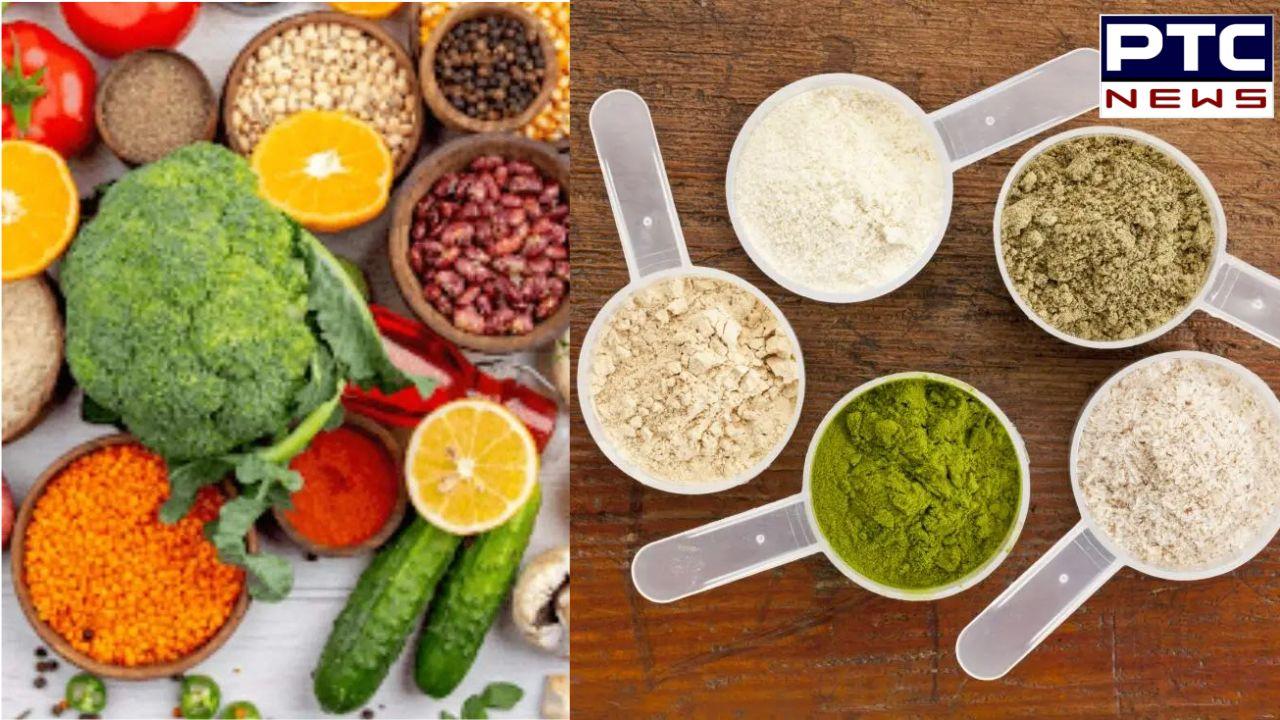- April 3, 2025
- Updated 2:22 am
ICMR flags protein supplement overuse; releases revised dietary guidelines
PTC Web Desk: The Indian Council of Medical Research (ICMR) has flagged the excess use of protein supplements for body mass building. It has released revised ‘Dietary Guidelines for Indians (DGIs)’ and urged people to prioritise healthy eating habits over reliance on protein supplements for body mass building.
In order to prevent non-communicable diseases (NCDs), the Hyderabad-based National Institute of Nutrition (NIN), under the ICMR, has outlined key recommendations focusing on essential nutrient intake and mindful food choices.
_42386c29e51382d01896f60a0ecfa1ce_1280X720.webp)
Led by Dr Hemalatha R, Director of ICMR-NIN, a multi-disciplinary committee of experts formulated the guidelines after extensive scientific review. As many as 17 guidelines have been formed, which lay focus on avoiding excessive protein powders and high protein concentrate consumption in the wake of potential risks of bone mineral loss and kidney damage.
The Dietary Guidelines For Indians indicate that one should limit the intake of sugar to less than 5% of their total energy consumption. They should maintain a balanced diet with 45% of calories from cereals and millets and up to 15% from pulses, beans and meat. The remaining needs should be taken from nuts, vegetables, fruits and milk. The guideless further add that the total intake of fat should not be more than 30% of energy.
As per the guideline, limited availability and high costs of pulses posed a significant challenge. In the wake of this, a large section of people is dependent on cereals, which further contributes to inadequate intake of essential macronutrients and micronutrients. As per experts, this leads to increased risk of metabolic disruptions and insulin resistance from a young age.
Adding to troubles, wrong and unhealthy dietary patterns further contribute to a surge in various diseases in India. As per experts, over half of the diseases are result of poor diets. Besides stressing the role of healthy eating and physical activity, the guidelines highlight the potential to prevent a substantial portion of coronary heart disease, hypertension, and type 2 diabetes through lifestyle modifications.
The surge in consumption of highly processed foods high in sugars and fats, coupled with reduced physical activity and limited access to diverse foods, exacerbates micronutrient deficiencies and obesity, posing significant health challenges.
Recent Posts
- Crown of goddess Kali, gifted by PM Modi, stolen from temple in Bangladesh
- Hezbollah leader survives assassination attempt amid Israeli strikes that kill 22 in Beirut
- ਕ੍ਰਿਕਟ ਦੇ ਬਦਲੇ ਨਿਯਮ, ਹੁਣ ਇਸ ਕੇਸ ‘ਚ ਦੁਬਾਰਾ ਨਹੀਂ ਮਿਲੇਗੀ ਬੈਟਿੰਗ, ਮੰਨਿਆ ਜਾਵੇਗਾ
- ਸਚਿਨ ਤੇਂਦੁਲਕਰ ਦੇ ਬਰਾਬਰ ਪਹੁੰਚੇ ਜੋ ਰੂਟ, ਪਰ ਵਿਰਾਟ ਦੇ ਇਸ ਰਿਕਾਰਡ ਤੋਂ ਅਜੇ ਵੀ ਦੂਰ
- Ratan tata death: ਸਿਰਫ ਵੋਲਟਾਸ ਹੀ ਨਹੀਂ, ਸਵੇਰ ਤੋਂ ਰਾਤ ਤੱਕ ਤੁਹਾਡਾ ਕੰਮ ਟਾਟਾ ਦੇ ਬਿਨਾਂ ਨਹੀਂ ਚੱਲ ਸਕਦਾ
